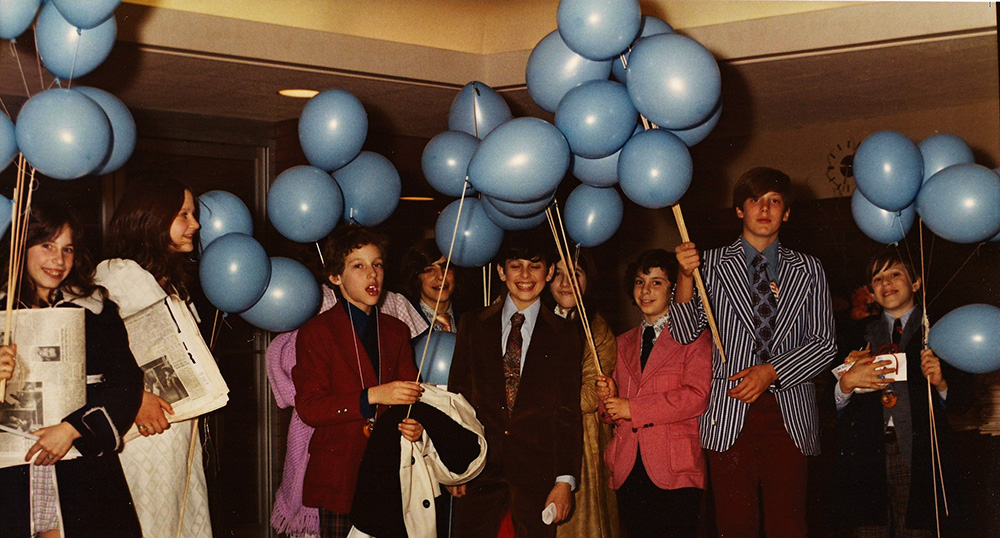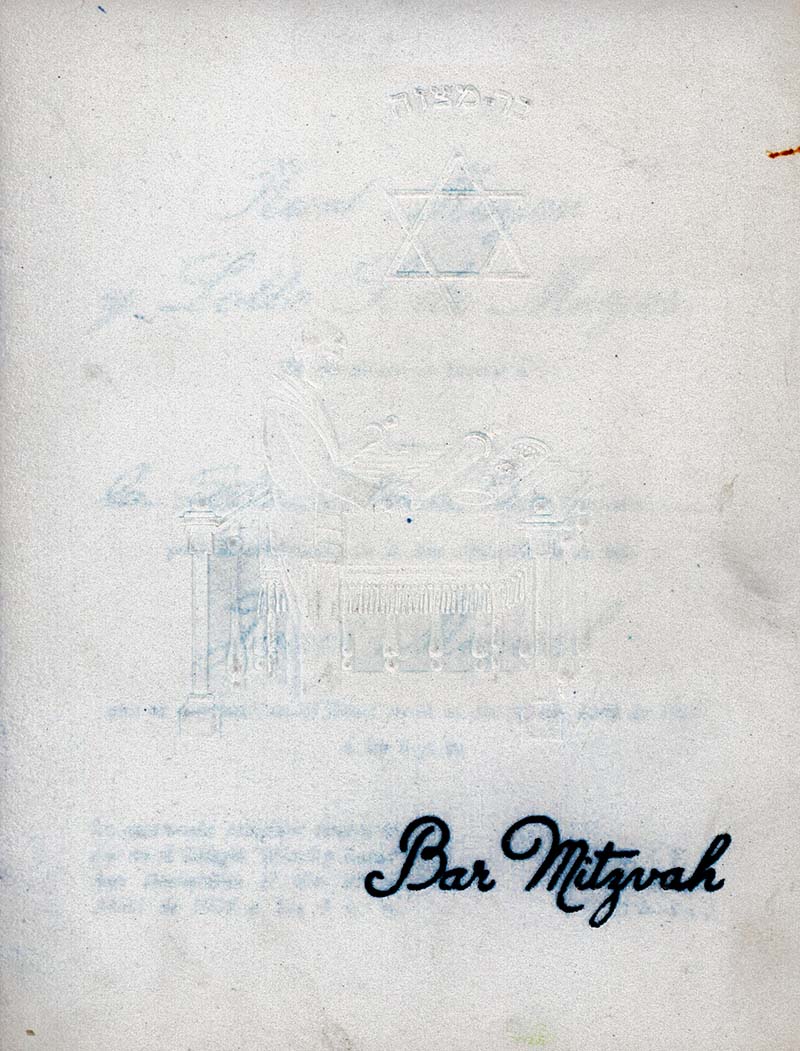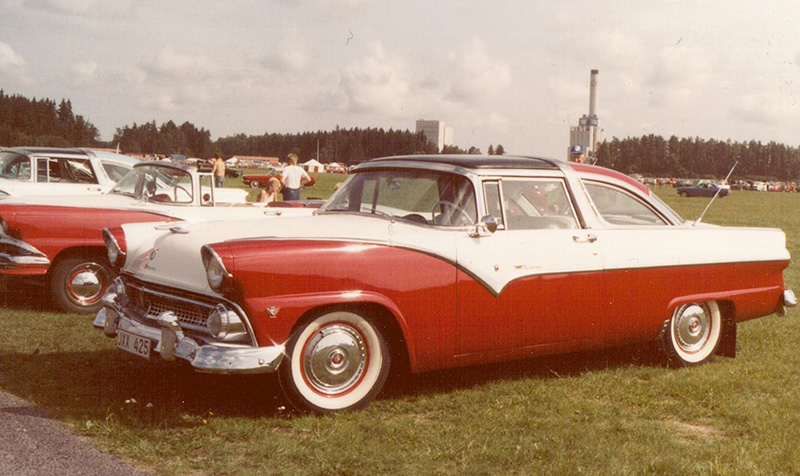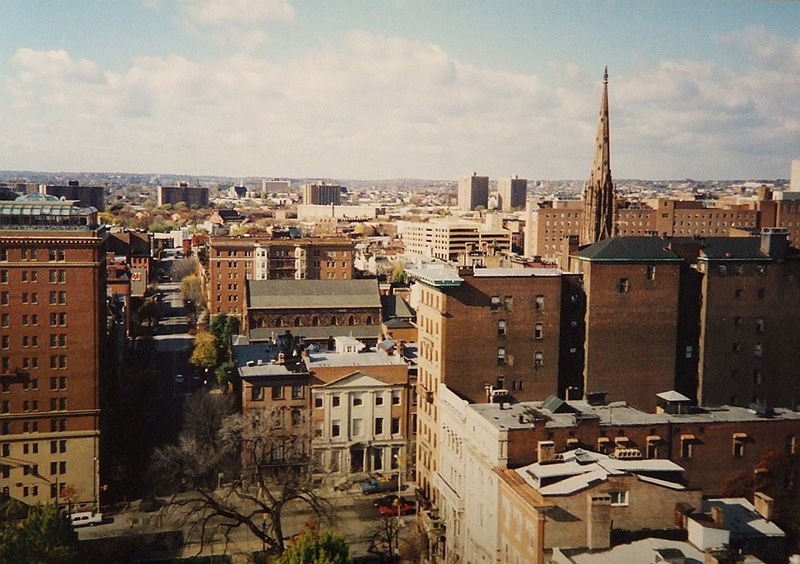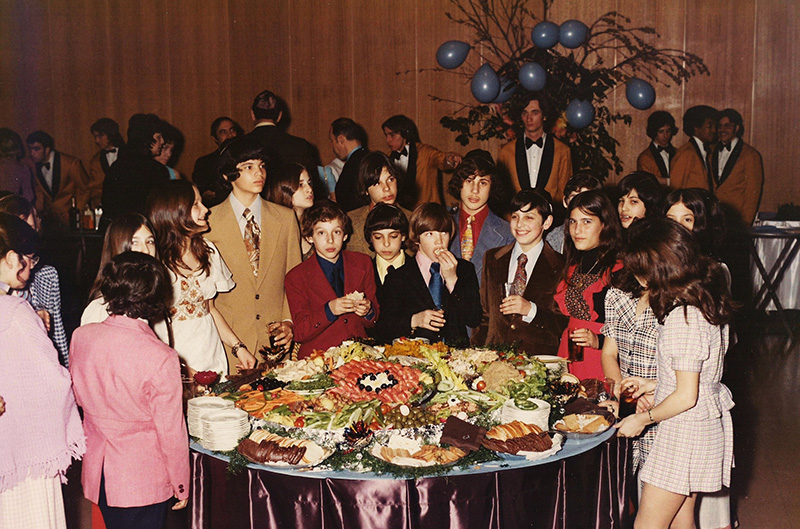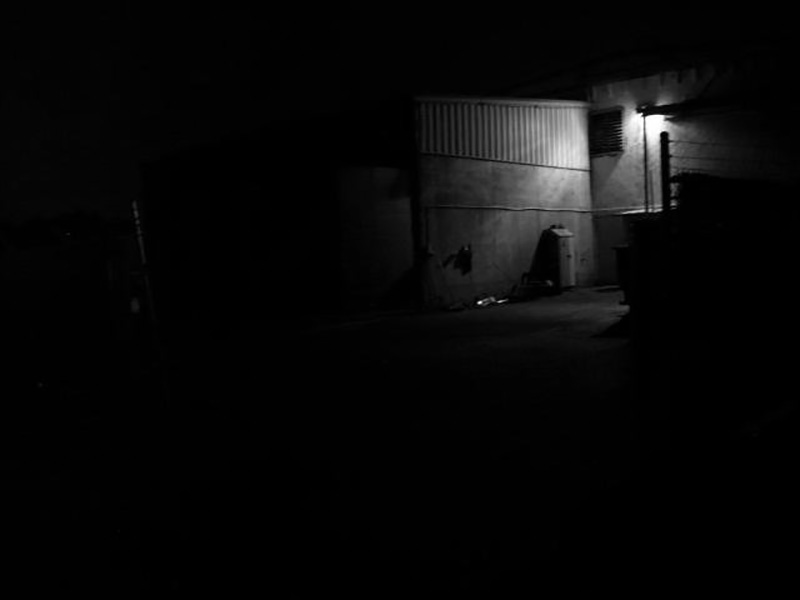My father had two sisters, one older and the other younger. Min, the oldest, had four children — Henry, Willie, Harold, and Loretta. (I know this is starting to sound like a recitation from the Bible: “And Seth begot Enosh and Enosh begot Kenan, and Kenan begot Mahalalel, and on and on.”) My Aunt Min moved from Newark to Los Angeles in 1946. I didn’t know her well (I was only five when she moved and I never saw her again). Her son Henry stayed on the East Coast and lived in Lake Hopatcong, NJ (I always loved that name because it sounds so exotic). Willie, Harold, and Loretta were on the West Coast and I never met or saw Willie and Harold. I just heard their names, always spoken together as if they were one person. Both were equally inconspicuous and unknown to me.
Henry worked for Yale Trucking, as did my father, and he had the high-paying job of an “over-the-road driver.” So I saw Henry on occasion, but rarely. There came a time when Loretta and her husband Isaac, a librarian, moved to Washington, D.C., and we began to see them when they visited Philadelphia with their two boys, Joe and Mike. While in Washington, Loretta’s son, Joe, attained the age of 13 and was to become a Bar Mitzvah.
We received an invitation to the event and, since my parents were divorced, my mother wasn’t invited, so it was Dad and me. To save money, we asked if we could go with Henry and his wife. Henry said yes and we agreed to meet at the Yale trucking center where Dad would leave his car and, according to the plans given to Dad by Henry, we would be picked up by Henry and his wife, Diane, at 4 p.m. on the Saturday of the Bar Mitzvah.
Henry had no interest in going to the services on Saturday afternoon and that suited Dad since, to the best of my knowledge, my father never set foot in a synagogue including for my Bar Mitzvah. So we were to go down to Washington for the reception and dinner that was to start at 6 p.m. Henry had already announced that he would meet us at the Yale yard at 4 p.m.!
Now it is important to understand this trip was to be made long before I-95 was built, and the route from Philly to D.C. was along Route 1 with traffic lights and speed limits of 30 mph for long stretches. To make the 150-mile trip in four hours would have been exceptional. No one could make the trip in three hours, and so it seemed that we were going to be several hours late. We were coming back the same night and it appeared that we would arrive at 8 p.m., say “Hello,” turn around, and go home. The trip had all of the makings of a disaster.
On the appointed day, Dad and I drove to the Yale yard. We got there very early on the assumption that we had misunderstood the time and we didn’t want to miss the ride. Dad parked the car and we went in to talk to Boris, the night and weekend watchman. Boris was of Slavic descent, Ukrainian I believe, spoke with a heavy accent, and was very deaf. Dad told him what we were doing and Boris said we should park the car in front of the building since, as he put it, “Da punk-es keeds climb da fence and crap up da trucks.” He pronounced “punks” as a two syllable word. “Ef I catch dem bastards, I goin’ to kill dem.” And with that he put his hand on the Smith & Wesson in the holster on his belt. We chatted amiably, Dad had a cup of terrible coffee, I was bored, and time dragged on. At 4 p.m. on the dot, Henry drove up to the front gate, honked his horn, and waited for Boris to open the gate. Dad and I jumped when we heard the horn, but Boris didn’t move. “Boris, open the gate, it’s Henry.”
Henry pulled into the yard with his red and white souped-up Ford Crown Victoria with his wife and his two kids, Melvin and Marilyn. Henry didn’t want three people to sit in the front seat, “It cramps my style,” he said. So Dad and I crawled into the back seat with Melvin and Marilyn, squirming and twisting until we were somewhat comfortable. Henry immediately told us this car had a 312 cu in V8 engine with two four-barrel Holley carburetors and a Paxton supercharger. “This baby has 300 horsepower,” he proudly exclaimed.
With that, he put the car in gear (manual transmission, of course) and we screeched out of the parking lot, turned left on to Rising Sun Avenue, fishtailing left and right, ran several red lights in a row, and sped through the city doing over 80 mph (I could see the speedometer clearly). When we got to Route 1, Henry really let the car go. We hit speeds of over 125 mph and he treated red lights like they were “suggestions” not to be worried about. He said that his philosophy was that the less time you spend in an intersection, the safer it is.
We pulled in front of the house in Washington a few minutes after 6 p.m., traversing about 150 miles in a little over two hours (as opposed to the typical three hours on Route 1). We averaged 75 mph! While we were on the road, I was afraid to talk for fear Henry would be distracted, but at one point when he was on a straight-away and doing nearly 130 mph, I asked him about the police stopping him for speeding. He laughed and said, “They can’t catch me. I’m much faster than they are.”
We went into the house and I immediately busied myself with the hors d’oeuvres. I did not get enough to eat at home and was perpetually hungry. I am reminded of the hunger pangs I felt in those years each time I go on a diet. At the Bar Mitzvah party, there was unlimited food and I wandered through the house gorging myself. I walked into a side room and became aware of loud shouting. There was an argument in progress. I looked into the next room and saw Henry gesturing and shouting in a loud voice. Loretta, his sister and the hostess, was shouting back at him in an equally loud voice. I didn’t want any part of this, so I went back to stuffing my face with all the food I could find.
Someone came over to me and started to speak. “Uh oh,” I thought, “she found out how much food I had eaten and she was going to reprimand me.”
“Didn’t you drive down with Henry and Marilyn?”
I swallowed the food in my mouth and, instead of speaking, I nodded in the affirmative.
“Well, they left about five minutes ago.”
I looked around and couldn’t find any of the four. I also couldn’t see my father. I was in a panic. Did they leave and forget about me? I found Loretta and asked her where was Henry and where was my father. Loretta exclaimed, “I told that S.O.B. to get out of my house, and he left.” And then, looking at me, she panicked, “Oh My God, you came with them!” By this time, my father appeared, and I ran up to him and told him that Henry had left.
“That’s not possible,” he said, “Henry knows we came with him and he wouldn’t leave without us.” Well, the truth was he did.
After much running around and gesticulating, someone suggested they drive us to the train station and we take the train back to Philadelphia. Loretta had a train schedule left over from one of her trips to Philadelphia and we saw there was a 9 p.m. train that got into 30th Street Station at midnight. Someone drove us to the train station and Dad used almost all of the money he had to buy tickets. We arrived in Philadelphia at midnight, and then we had the problem of how to get to Yale. Dad didn’t have enough money for a taxi, but he remembered that the #18 trolley (the route is now run with a bus) went right by Yale trucking terminal. We took the Market El to Broad, the Broad street subway to Olney, and the 18 trolley that left us off right in front of the Yale terminal. It was 1 a.m.
We could see Dad’s car parked in front of the building, but the gate was locked. Dad yelled really loud for Boris and I yelled as loud as I could, but he was so deaf he couldn’t have heard us. We tried throwing stones at the building to get his attention, but neither of us could throw that far. The fence was ten feet high, wire mesh, and too high to climb. Dad remembered that on the side of the building, at the end of the loading dock, a truck had backed into the fence and it was bent over. “You can climb over it there,” he said.
Sure enough, the fence had gotten bent into the yard and was at an angle such that I could scramble up along the fence and swing myself over to drop about seven feet into the yard. I was wearing my only suit and dress shoes, so the climb was not easy, but I did it. As I swung into the yard, my hand brushed the top of the fence and I got a fairly deep scratch on the palm of my right hand. Dad passed his handkerchief through the fence for me. “I only used it twice,” he said reassuringly. I wrapped it around my hand and walked around to the front of the building while Dad, outside the fence, walked around to the gate. When I got to the front door, I could see Boris sleeping with his head down on the desk. I banged on the door and yelled as loud as I could, but he was in such a deep sleep and was so deaf that he couldn’t hear me. Dad shouted to me from outside the fence and told me to go around to the side where the loading dock was. There, he said, I would find a door that was always unlocked.
Sure enough, the side door was unlocked, and I went in. I had been in the building before, and I sort of knew my way around. I walked around to the front lobby and suddenly Boris jumped in front of me with his gun aimed at my chest and, oh my God, he was pulling the trigger! “Boris!! It’s me!!” I screamed. Thank God his finger relaxed on the trigger, but he still had the gun pointed at my chest while he processed the situation. He was still a little groggy from his nap, and he didn’t expect to see anyone. But the realization sunk in, and he holstered his gun.
He went to the front gate, let Dad in, and said to him, “I nearly killed this bastard,” while he pointed to me with his right hand forming a mock gun. Dad looked over, saw that I wasn’t dead, and said, “Is my car alright?”
I was pale, cold, sweaty, scared, and about to faint. Had he pulled the trigger from three feet away, there would have been nothing left of me. I knew that I had been a hair’s breadth away from being killed.
After my freshman year in college, I worked for Yale and, in the course of my work, wandered around the terminal and got to know the building really well. But every time I turned the corner into the lobby, my heart skipped a beat, and I thought I saw the gun pointed at my heart.
And every time Boris saw me, he would make a gun with the forefinger of his right hand, and announce to everyone in earshot, “I almost killed this bastard!” •
Feature image courtesy of Carl Lender. Source images courtesy of the author, and mike, Lee Burchfield, Carl Lender, jukie bot, clyde robinson via Flickr (Creative Commons).
